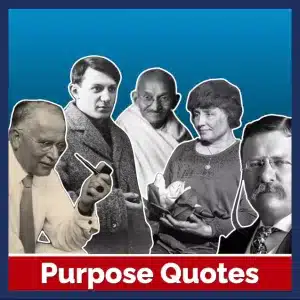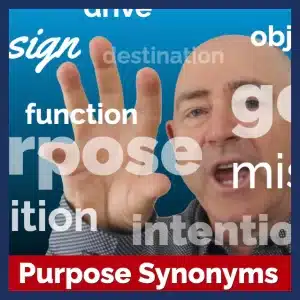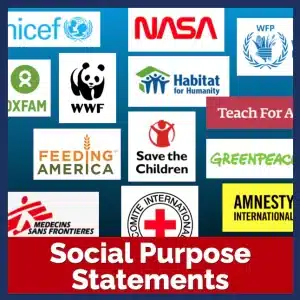What’s the best thing you can do on New Years Day? Apart from recover from last night’s celebrations, you can plan your year ahead. To help you create your best year yet, here are the 10 questions I ask myself each year on New Year’s Day…
Review Last Year
I always start with a review of last year. This involves two big chunks: my achievements and my feedback about what worked and what didn’t.
Achievements
1 What did you achieve?
To really make this work, I force myself to write down at least 50 things I achieved last year. Yes, fifty! This forces me to look beyond the obvious. And I write down both quantities and qualities. For instance, I meditated for 24 minutes twice a day for 275 days straight. That’s quantity. And, as a result, I feel calmer and more relaxed than I’ve ever been. That’s quality. And, I’m happy to count this as two achievements.
2 What did you not achieve?
I like the idea that I achieved more things than I didn’t achieve. Thus, I only aim for 25 things on my ‘did not achieve list’. One of my big fails for the year was that I didn’t tick a single thing off my bucket list for the entire year.
You might also have some items on both of your achievement lists. For instance, last year I posted 204 blog posts. I’m proud of that, it’s a great achievement. And my goal was 300. So, whilst I did well, I didn’t achieve my goal.
Feedback
I then like to add some interpretation and meaning to my results by using the classic feedback sandwich. I aim for 5-10 answers for each of these questions:
3 What worked?
‘What worked’ aims to identify the things I want to repeat again in the year ahead. For instance, waking up early and walking or riding my bike to the library worked really well to boost my energy and have me be more productive.
4 What didn’t work?
‘What didn’t work’ aims to identify the things I want to stop doing in 2015. For example, I realized how important my sleep was. And, when I don’t have enough sleep, I don’t work very well the next day. And, in some cases when I became really tired the next day was a complete write-off. I want to manage my sleep better in 2018.
5 What would you do differently?
‘What would you do differently’ aims to identify the things that I would change in the year ahead. For instance, I felt like there were too many times that I pumped out a blog post just to meet my daily target. Whereas, I think what works better is to schedule time in advance to write a series of them in a more relaxed manner.
[Tweet “The ten questions to ask yourself to plan your year #2018 #HappyNewYear”]
Design the Year Ahead
Now let’s turn to the year ahead and five questions to plan your year. I’ve broken this up into two loose sections – some general goals and some specific ones.
General Goals
6 What are your guiding principles for the year ahead?
I like the idea of distilling the feedback from the previous section into 3-5 general principles that I’ll use to guide me in the year ahead. For example one of my big ones is to form more partnerships. I think I played ‘solo man’ too often last year. I can use this as a principle and a frame of reference for making decisions and planning during 2018.
7 What roles or domains are you playing in?
Before I start setting goals, I like to plot the roles I play in life or the areas of my life that I play in (domains). This is important because it helps me to consider my whole life and to ensure I don’t get stuck focusing only on my work.
I aim for 3-7 areas. Whilst the usual ones come with boring names like work, family, sport, community, I like to come up with sexy names for them to create a sharper, more energising edge. Here are some domains that I’ve created for myself:
- Sexy at 100 – This one is inspired by Patterson Stark and is my health and fitness area.
- Partner Up – This one is inspired by Simone Novello from PartnerUp and it’s all about creating more partners in my life and in my business
- Yes We Can – Following in Obama’s footsteps, I want to take on more projects by saying ‘yes’ more often.
Specific Goals
Now, I like to create specific goals in each of the domains or roles I created in the previous question.
8 What do you want to achieve?
I usually aim for at least 10 goals in each role or domain. This forces me to get the creative juices flowing. Then, I cut them back to an overall list of 50 goals for the year. If this is too many for you, then cut it back even further.
Here are a couple of my goals for 2015:
- Blog every day – 365 posts
- Write and Publish my ‘Ideas Marketing’ book
- Create the ‘Ideas Marketing’ board game
- Go on 25 dates
- Plan every day
- Have an adventure/trip with my Mum and Dad
- Keep my body fat down to 15%
9 What are your top 3 goals?
Out of my big list of goals I then select my three most important goals. Alternatively, you might like to select your most important goal in each of your roles/domains.
My top three goals for 2018 are:
- Build a team around Ideas Architect
- Meet a new life partner
- Travel overseas at least once
10 What is your theme for the year?
Finally, I bring this down to a single theme for the year. Chris Brogan likes to do this also. While he prefers three words for the year, I prefer one word to capture the spirit of what I want the year ahead to be all about. This is all about focus. For me, it’s much easier to remember one thing than three. Choose what works for you.
My theme for 2018 is: ‘Adventure’. My #2 book in my Book of the Year 2017 was Kelly McGonigal’s The Upside of Stress. Rather than thinking ‘stress’ I’m now thinking ‘adventure’. I wrote more about creating your word for the year and a visual here.
Plan Your Year
I’d love to hear your plans for 2018. In particular, your top 3 goals and your theme. Leave a comment below to share your plan.




